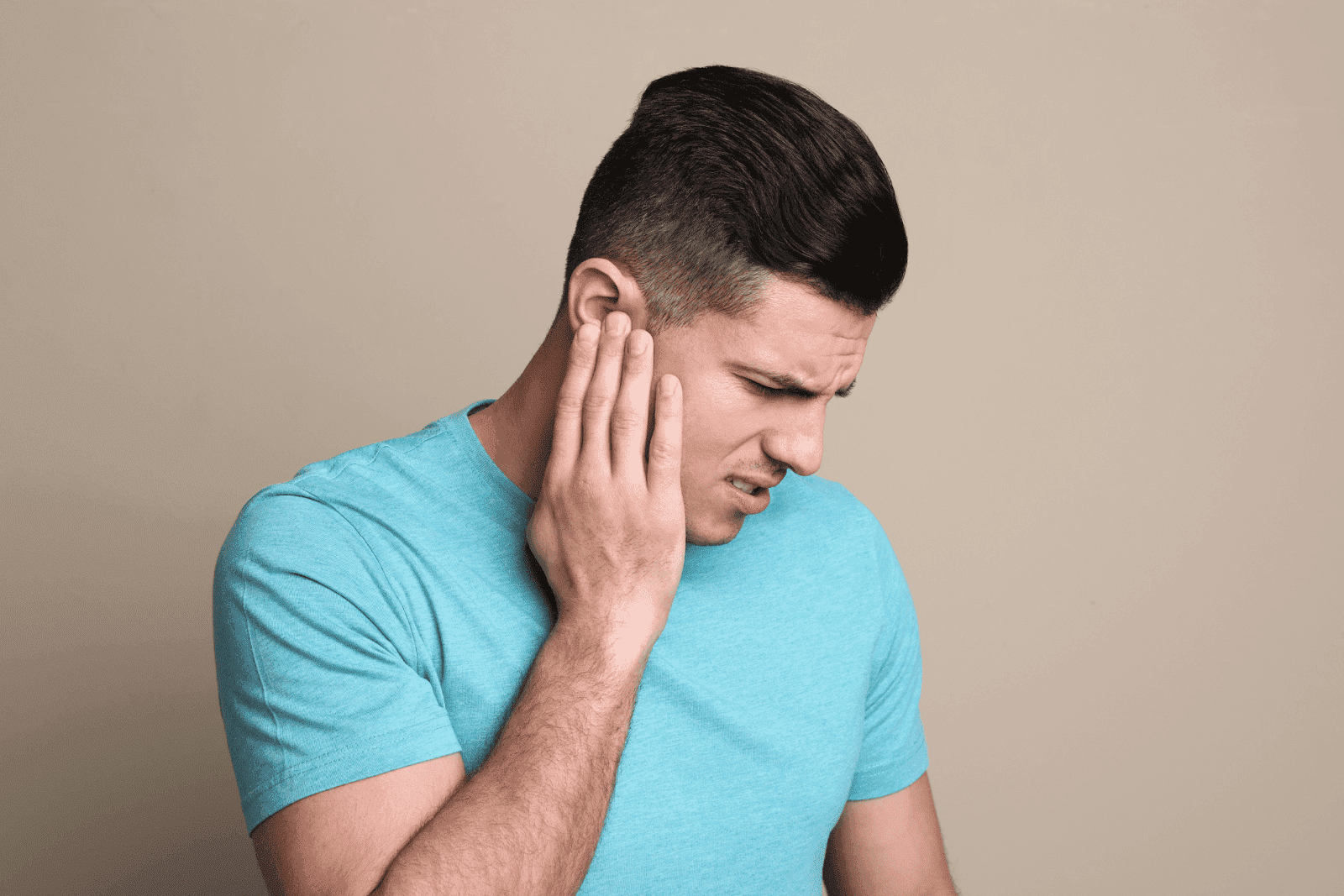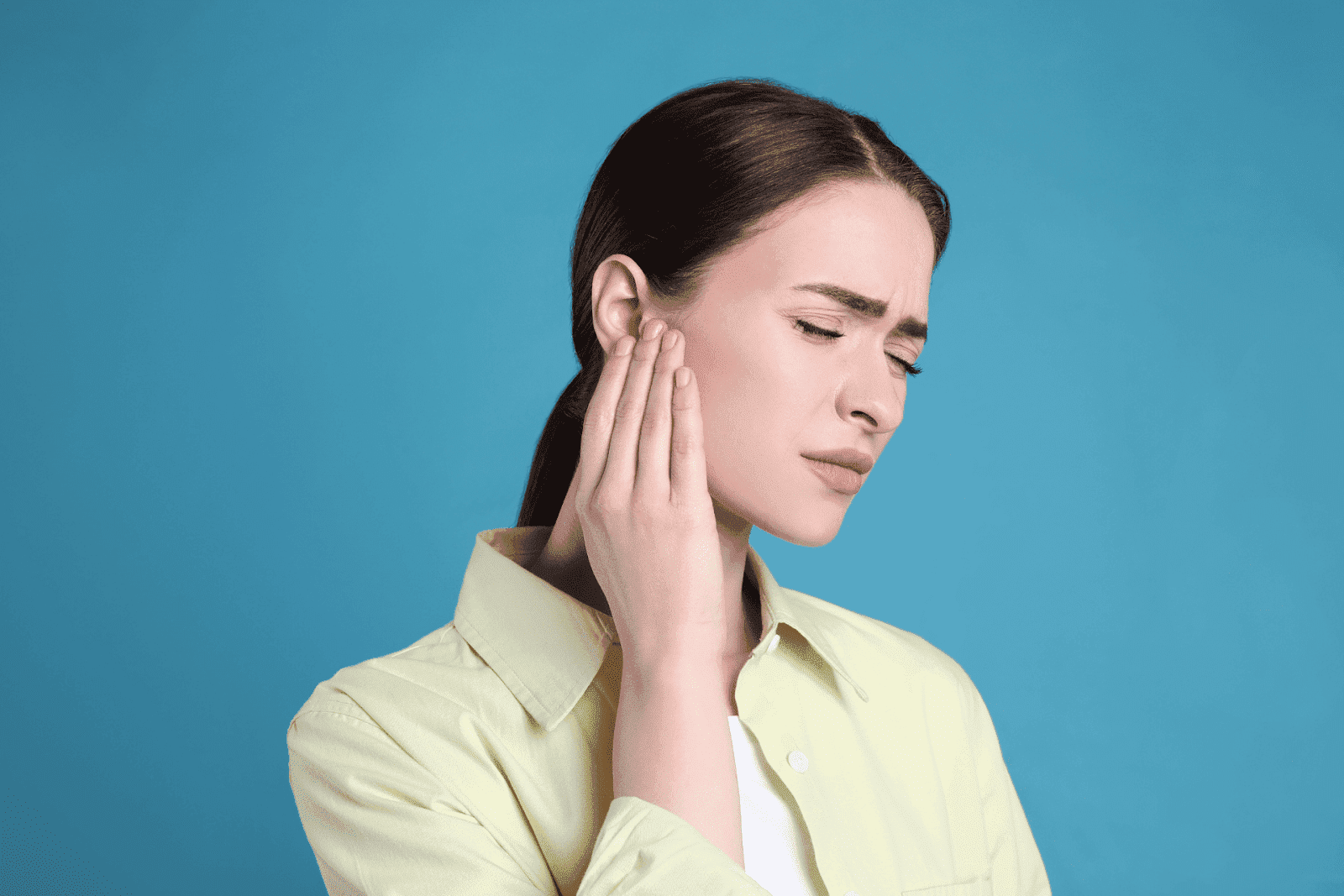Why Does My Ear Hurt When I Chew?
Experiencing ear pain while chewing can be both confusing and uncomfortable. This symptom might seem isolated to the ear, but often, it involves a complex interaction between [...]
Read More
Medically reviewed by Alan Lucks | MD, Alan Lucks MDPC Private Practice - New York on October 13th, 2025.
The temporomandibular joint sits just 2-3 millimeters from the ear canal, sharing nerve pathways through the trigeminal nerve, which explains why jaw dysfunction creates referred pain during chewing.
Warm compresses applied for 15-20 minutes can reduce TMJ inflammation, while ibuprofen 400-600mg every 6-8 hours helps control both pain and swelling in the joint.
Dental abscesses in upper molars frequently cause ear pain because these teeth's nerve roots connect directly to the same branches that supply ear sensation.
Acute otitis media (middle ear infection) affects the eustachian tube's ability to equalize pressure, making chewing motions particularly painful due to increased pressure changes.
Red flag symptoms requiring immediate evaluation include fever above 101°F, hearing loss, purulent ear drainage, or facial swelling—these suggest serious infection or complications.
Experiencing ear pain while chewing can be both confusing and uncomfortable. This symptom might seem isolated to the ear, but often, it involves a complex interaction between the jaw, ear, and surrounding tissues. Understanding why your ear hurts when you chew is essential for identifying the underlying cause and seeking the right treatment. This article explores the common reasons behind ear pain during chewing, how to recognize serious conditions, and when to consult a healthcare professional. Additionally, it highlights how modern telehealth services like Doctronic.ai can provide quick and reliable medical advice from the comfort of your home.
The temporomandibular joint connects your jawbone to your skull, located just in front of your ear. TMJ disorders are among the most frequent reasons for ear pain linked to chewing. When this joint becomes inflamed or misaligned, it can cause pain that radiates to the ear, especially during jaw movement like chewing or talking.
Symptoms of TMJ disorders include jaw clicking or popping, limited jaw movement, headaches, and tenderness around the ear or jaw. Stress, teeth grinding, arthritis, or injury to the jaw can contribute to TMJ problems. Because the joint is so close to the ear canal, pain can easily be perceived as originating from the ear itself. In some cases, individuals may also experience facial pain or discomfort that can extend to the neck and shoulders, further complicating the diagnosis and treatment. Managing TMJ disorders often involves a combination of lifestyle changes, physical therapy, and sometimes dental interventions, such as the use of bite guards to alleviate pressure on the joint.
 Ear Infections and Inflammation
Ear Infections and InflammationMiddle ear infections (otitis media) or outer ear infections (otitis externa) can cause ear pain that worsens with chewing. Chewing moves the jaw muscles and can put pressure on the inflamed areas, intensifying discomfort. Infections may also be accompanied by other symptoms such as fever, hearing loss, fluid drainage, or a feeling of fullness in the ear.
While ear infections are more common in children, adults can also experience them, especially if they have allergies, sinus infections, or water trapped in the ear after swimming. Timely diagnosis and treatment are essential to prevent complications. Chronic ear infections can lead to more serious conditions, such as eardrum perforation or hearing loss, making it crucial to seek medical advice if symptoms persist. Treatment may involve antibiotics, pain relievers, or, in some cases, surgical intervention to drain fluid buildup.
Issues with your teeth, such as cavities, abscesses, or impacted wisdom teeth, can cause referred pain to the ear. The nerves that supply the teeth and jaw also connect near the ear, so dental pain can sometimes feel like ear pain. Chewing aggravates these dental conditions, making the pain more noticeable.
If you notice sensitivity to hot or cold, swelling, or a persistent toothache along with ear pain, it’s advisable to visit a dentist promptly. Addressing dental problems early can prevent the spread of infection and more severe complications. Additionally, poor dental hygiene can lead to gum disease, which may also contribute to discomfort in the jaw and ear area. Regular dental check-ups and cleanings are essential not only for maintaining oral health but also for preventing issues that could lead to ear pain.
Less commonly, ear pain during chewing may be caused by issues such as:
Sinus infections: Pressure from sinus congestion can radiate to the ear and jaw.
Earwax buildup: Excessive earwax can cause discomfort and worsen with jaw movement.
Neuralgia: Nerve pain, such as trigeminal neuralgia, can cause sharp, shooting pain in the ear and face.
Injury or trauma: Any recent injury to the head, jaw, or ear may result in pain when chewing.
In addition to these causes, certain systemic conditions, such as fibromyalgia or autoimmune disorders, can manifest as pain in various parts of the body, including the ears and jaw. These conditions may require a multidisciplinary approach for management, involving healthcare providers from various specialties. Furthermore, lifestyle factors such as poor posture, which can strain the jaw and neck muscles, may also contribute to the discomfort experienced during chewing. Understanding the underlying causes of ear pain can help in seeking appropriate treatment and alleviating symptoms effectively.
While mild ear pain during chewing can sometimes resolve on its own, certain signs indicate the need for professional evaluation. Persistent or severe pain, swelling, fever, hearing loss, or drainage from the ear should prompt a visit to a healthcare provider.
Given the complexity of symptoms and the variety of possible causes, consulting a medical professional ensures an accurate diagnosis and appropriate treatment. Fortunately, with advances in telehealth, accessing expert care has become easier and more convenient than ever.
Telehealth platforms like Doctronic.ai offer a modern approach to primary care, powered by artificial intelligence and backed by licensed doctors. Doctronic provides fast, comprehensive AI-driven medical guidance that synthesizes the latest peer-reviewed research to help you understand your symptoms and recommend next steps.
Whether you have questions about ear pain, need a second opinion, or want to schedule a video visit with a real doctor, Doctronic offers affordable and convenient access to care 24/7 across all 50 states. Over 10 million users have already benefited from this innovative service, which combines the speed and knowledge of AI with personalized, patient-focused care.
Traditional healthcare often involves long wait times and limited appointment availability. Doctronic.ai revolutionizes this by providing instant AI doctor visits at no cost, allowing users to get immediate answers to health questions. For more complex concerns, affordable telehealth video visits with licensed doctors are available around the clock.
One of the unique advantages of Doctronic is its ability to remember your medical history and personalize care over time. Unlike typical telehealth services, which treat each visit as a separate encounter, Doctronic’s AI doctor builds a comprehensive understanding of your health, making it easier to track symptoms like ear pain and provide tailored advice.
While waiting to see a healthcare provider, there are some steps you can take to alleviate ear pain associated with chewing:
Avoid hard or chewy foods: Stick to soft foods that require less jaw movement to minimize discomfort.
Apply warm compresses: A warm cloth placed over the affected area can help reduce muscle tension and pain.
Practice jaw relaxation techniques: Gentle jaw stretches and avoiding excessive talking or yawning may ease TMJ-related pain.
Maintain good oral hygiene: Brush and floss regularly to prevent dental infections that could contribute to ear pain.
Over-the-counter pain relief: Nonsteroidal anti-inflammatory drugs (NSAIDs) like ibuprofen can reduce inflammation and pain, but should be used as directed.
Remember, these measures are supportive and not a substitute for professional diagnosis and treatment, especially if symptoms worsen or persist.
Ignoring ear pain during chewing can lead to complications, particularly if the underlying cause is an infection or a serious dental issue. Early diagnosis allows for timely intervention, which can prevent chronic pain, spread of infection, or damage to the jaw joint.
Using a trusted telehealth service like Doctronic.ai can be a first step toward understanding your symptoms. The AI-powered system can quickly analyze your condition, provide evidence-based recommendations, and connect you with doctors for further evaluation if needed. This approach saves time, reduces unnecessary in-person visits, and empowers you to take control of your health.
 Relief Starts With the Right Guidance
Relief Starts With the Right GuidanceEar pain when chewing is a common symptom with multiple potential causes, ranging from TMJ disorders and ear infections to dental problems and nerve issues. Recognizing accompanying symptoms and understanding when to seek medical care is crucial for effective treatment.
Modern telehealth solutions such as Doctronic.ai provide fast, accurate, and personalized medical advice, making it easier than ever to get help for ear pain and related concerns. Whether through free AI doctor visits or affordable video consultations with licensed physicians, Doctronic is transforming how people access primary care.
If you or a loved one experiences persistent ear pain when chewing, don’t hesitate to explore telehealth options or consult your healthcare provider to ensure timely and appropriate care.
Don't let ear pain disrupt your life. With Doctronic, you have immediate access to the #1 AI Doctor, ready to provide you with personalized, peer-reviewed medical advice in seconds. Our AI-powered platform offers free doctor visits and remembers every detail about your health, ensuring the most personal care available. For those times when you need more, our telehealth video visits with licensed doctors are available 24/7 in all 50 states, for less than $40. Skip the line and experience the future of healthcare. Talk to an AI Doctor Now, for free.
Most chewing-related ear pain stems from TMJ disorders or infections that share nerve pathways with jaw muscles. Start with soft foods, warm compresses, and anti-inflammatory medication, but seek prompt medical attention for fever, hearing changes, or drainage. If you're experiencing persistent symptoms, Doctronic can help determine the underlying cause and appropriate treatment.
Experiencing ear pain while chewing can be both confusing and uncomfortable. This symptom might seem isolated to the ear, but often, it involves a complex interaction between [...]
Read More